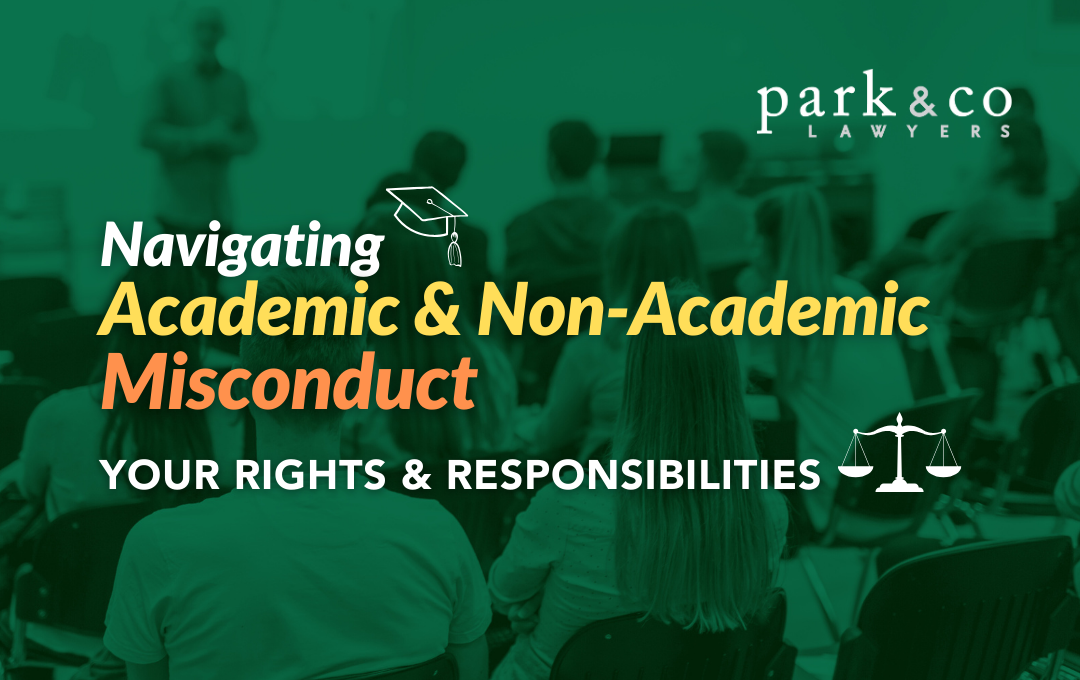University education can be a pivotal and life-changing opportunity for many students. Australia is home to countless students, both domestic and international, seeking this opportunity to pursue their university education to broaden career pathways and better their futures. It is therefore of utmost importance to ensure that you, as a student, are able to make the most of this opportunity.
A concerningly common and arising issue for students is academic and non-academic misconduct, which can lead to damaging and shattering consequences. It is crucial to understand what generally constitutes academic and non-academic misconduct, and how you can manage and handle a situation where you have been accused of academic or non-academic misconduct.
Understanding Academic and Non-Academic Misconduct
Academic misconduct, as the name suggests, refers to student conduct that offends or violates the integrity of the university’s academic and education guidelines. Common forms of academic misconduct include plagiarism, collusion, and cheating.
On the other hand, non-academic misconduct refers generally to student conduct that is not of an academic nature, but is still inconsistent with the continuation of the student’s enrolment within the university. This may include bullying, sexual harassment, acts of violence, and other prohibited activities.
Student Rights and Responsibilities
All students have the responsibility to meet the expectations, both academic and non-academic, set by the university. However, students are also entitled to proper procedural fairness and natural justice should there be allegations of academic or non-academic misconduct.
Every university will have policies and procedures in place that govern and regulate student conduct and behaviour during the course of their enrolment. Although the university’s policies and procedures are not legislative instruments, they are still enforceable and binding as the rules that regulate the relationship between students and the university.
Handling Disputes
Where there is an allegation of academic or non-academic misconduct against you, you will usually receive a written notice from the university, formally informing you of the details and particulars. You will usually be given an opportunity to provide a response to the university as to the allegations, and in some circumstances, you may be invited to attend an interview.
It is important that you maximise your opportunity to respond to the university’s allegations, and it is strongly encouraged and recommended that you seek advice from a lawyer as well as your university’s student services.
Consequences of Misconduct
If your university comes to the conclusion that you have engaged in academic or non-academic misconduct, you may be subject to a number of penalties, including but not limited to being formally reprimanded, suspended, or expelled from your enrolment.
In addition to the direct consequences to your immediate enrolment, such penalties may also impact your future registrations with professional authorities (e.g. AHPRA, Law Societies, etc.), as well as your visa status if you are an international student on a temporary student visa.
If you are of the view that the university has improperly conducted its investigation, or failed to accord to procedural fairness, you may be entitled to lodge an appeal internally through the university. International students may also be entitled to lodge a complaint or appeal to the Commonwealth Ombudsman.
Conclusion
It can understandingly be incredibly stressful when you have been subject to an allegation of academic or non-academic misconduct. Many students make the mistake of letting their emotions get the better of them, and provide responses to the university that are naïve to the gravity of the matter. It is imperative that you receive proper advice and guidance to ensure that your position is comprehensively communicated to the university, and that your rights of procedural fairness and natural justice are properly accorded to.
This article provides general information only, and each university and institution has its own unique policies and procedures in place. If you are a student that is currently undergoing academic or non-academic misconduct proceedings, you are encouraged to seek further advice from our team at Park & Co Lawyers.
Our team at Park & Co Lawyers has a proven track record of successfully representing and advocating for clients and their legal rights in academic and non-academic misconduct matters. We always welcome your enquiries, and we are more than happy to assist you.









